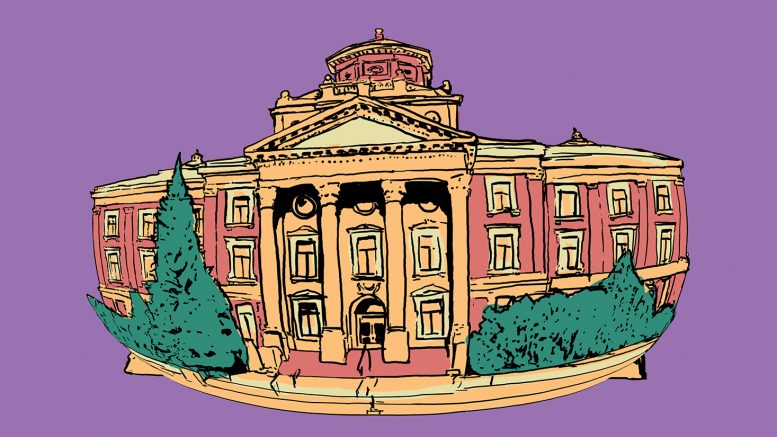Tuition fees are a major barrier to accessing post-secondary education, and tuition fees have been on the rise. Between 1993-94 and 2014-15, tuition fees in Canada have tripled. As students who have to bear this cost, it is in our interest to fight for universal access to post-secondary education. In short, this means abolishing tuition fees. Universal post-secondary education is also in the interest of society at large – free tuition means more people can have the opportunity to attend university and continue their education.
The Canadian Federation of Students has long been at the forefront of the fight for free tuition in Canada, and they’ve worked toward their goal through lobbying the federal and provincial governments. Ultimately, these lobbying efforts have been ineffective, and tuition has continued to rise. If we are to see progress on abolishing tuition, we need to look beyond lobbying and start taking direct action. This begins with engaging in direct democratic organizing.
One example of the success of direct action is the 2012 Quebec student strike, or “Maple Spring.” In March 2011, the provincial government in Quebec, led by then-Premier Jean Charest, tabled a budget that would increase tuition fees by 75 per cent over five years. Students protested in response, which culminated in a student strike in the following February. As a result of the strike, Jean Charest’s government called a general election on Aug. 1, 2012. The official opposition Parti Québécois was elected to a minority government and subsequently cancelled the tuition increase.
As a result of direct action by students, tuition increases were halted. If we want to see tuition abolished, we are going to need to start democratically organizing across the country.
Setting up departmental student associations where they don’t exist and reinvigorating existing departmental student associations that have become inactive is critical to building a truly pan-Canadian revolutionary student movement.
Here in Manitoba, the first test of our new student movement may come this spring when the provincial government tables the budget for 2017-18. It is possible that the Pallister government may lift the tuition cap. Pallister has said that he may allow post-secondary institutions to raise tuition beyond the tuition cap, which currently limits tuition increases to the rate of inflation. If the Pallister government does lift the tuition cap, we must organize mass student walkouts in protest.
By strengthening student associations at the departmental level, the student body will become more involved in governing processes and hopefully lead to a more democratic campus. It would be through these avenues that a student strike could be made possible.
Such walkouts would be the beginning, and only a taste of what a democratic student movement can do.
Dylan Fijal is a member of the University of Manitoba Student Action Network. You can find the student group on Facebook at https://www.facebook.com/groups/UMSAN/


